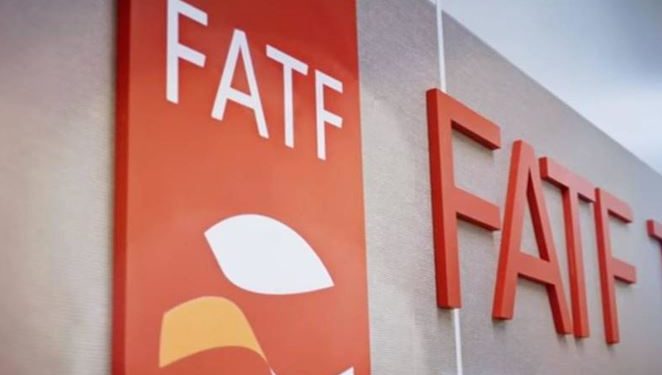Islamabad: There is no possibility of Pakistan being blacklisted by the FATF as it has made ‘significant progress’, a senior minister claimed Friday, a day after the global anti-money laundering watchdog retained the country on its ‘Grey List’, citing ‘serious deficiencies’ on its part in checking terror-financing.
Addressing the media after the Financial Action Task Force, the Paris-based global body against money-laundering and terror-financing, announced to keep Pakistan on its Grey List until June, Minister for Industries Hammad Azhar said that Islamabad achieved the targets despite the challenging timeline given to it.
“There was no possibility of Pakistan being blacklisted by the FATF,” Azhar, who led Pakistani delegation at the plenary as the chairman of the FATF Coordination Committee, said.
“At the previous plenary, FATF countries and the FATF secretariat said that blacklisting was not an option because the country has achieved significant progress,” he said.
Azhar claimed that the world was “appreciative” of Pakistan’s effort to complete the 27-point action plan of the FATF.
“As you have seen, today the FATF itself is saying that we are 90 per cent close to achieving this goal,” he said, adding that the remaining three point out of 27 would be completed soon.
The FATF has retained Pakistan on the “Grey List”, giving it another four months to remove the deficiencies in three remaining points of the “action plan”.
After its virtual plenary on Thursday, Marcus Pleyer, president of FATF, said the deadline given to Pakistan has already expired and asked Islamabad to address their concerns “as quickly as possible”.
There is “serious deficiency” on the part of Pakistan in checking terror-financing and the country is yet to demonstrate taking action against the UN-designated terrorists and their associates, he said.
Pleyer said Pakistan continues to remain on the “increased monitoring list”, another name for the “Grey List”.
He said the courts in Pakistan must mete out “effective, decisive and proportionate” punishment to those involved in terrorism, a statement which comes close on the heels of the acquittal of terrorist Omar Saeed Sheikh, the main accused in the 2002 murder of American journalist Daniel Pearl, by Pakistan’s Supreme Court.
Among the UN-designated terrorists are India’s most wanted terrorists such as Jaish-e-Mohammed (JeM) chief Masood Azhar, Lashkar-e-Taiba (LeT) founder Hafiz Saeed and the outfit’s operational commander, Zakiur Rehman Lakhvi.
Azhar, Saeed and Lakhvi are most wanted terrorists in India for their involvement in numerous terrorist acts, including the 26/11 Mumbai terror attacks and the 2019 bombing of a CRPF bus in Jammu and Kashmir’s Pulwama. Pleyer said Pakistan must complete three unfulfilled tasks and once that is done, the FATF will verify and take a decision on its present status in the next plenary to be held in June.
Pakistan was placed on the “Grey List” by the FATF in June, 2018 and was given a plan of action to be completed by October, 2019. Since then the country continues to be on that list due to its failure to comply with the FATF mandates.
The FATF is an inter-governmental body established in 1989 to combat money-laundering, terror-financing and other related threats to the integrity of the international financial system.
It currently has 39 members, including two regional organisations — the European Commission and the Gulf Cooperation Council. India is a member of the FATF consultations and its Asia Pacific Group.
PTI






































